Search
Search Results
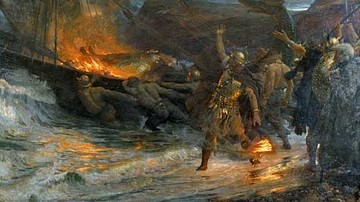
Image
The Funeral of a Viking
Painting by Frank Dicksee (1853-1928 CE) titled "The Funeral of a Viking", showing a Viking being cremated on a ship pushed out to sea. The painting resides at the Manchester Art Gallery in the UK. Historically, although burial became...
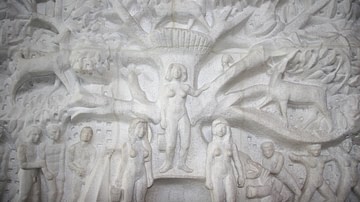
Article
Viking Prophecy: The Poem Völuspá of the Poetic Edda
The Völuspá (Old Norse: Vǫluspá) is a medieval poem of the Poetic Edda that describes how the world might have come into shape and would end according to Norse mythology. The story of about 60 stanzas is told by a seeress or völva (Old Norse...
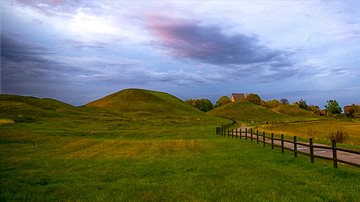
Collection
Norse-Viking Culture
Norse-Viking culture is frequently misrepresented in popular media which emphasizes the rugged, militaristic aspect of the people. In reality, Norse culture placed a high value on appearance, personal hygiene, and religious devotion, creating...
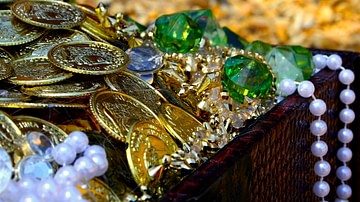
Article
Treasure & Booty in the Golden Age of Piracy
During the Golden Age of Piracy (1690-1730), pirates were first and foremost after gold, silver, and jewels, but if these could not be grabbed, then a ship’s cargo would be taken for resale at a pirate haven. Shared amongst the crew, the...
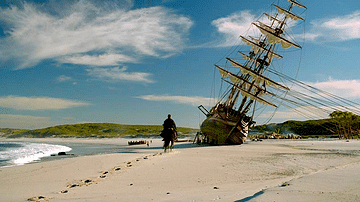
Article
Pirate Havens in the Golden Age of Piracy
The buccaneers who roamed the Spanish Main and the pirates who plundered the Caribbean and the Indian Ocean during the Golden Age of Piracy (1690-1730) needed a place of refuge where they could share out and enjoy their loot. Pirate havens...
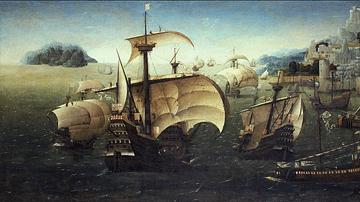
Article
The Spice Trade & the Age of Exploration
One of the major motivating factors in the European Age of Exploration was the search for direct access to the highly lucrative Eastern spice trade. In the 15th century, spices came to Europe via the Middle East land and sea routes, and spices...
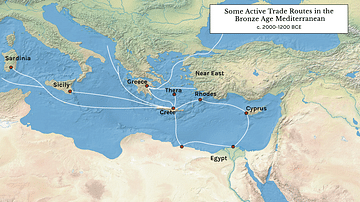
Article
The Minoans & Mycenaeans: Comparison of Two Bronze Age Civilisations
The Bronze Age Aegean in the eastern Mediterranean encompassed several powerful entities: the Minoans on Crete; the Mycenaeans on mainland Greece, and the Cypriots on Cyprus. These cultures are often examined separately, and thus the ample...
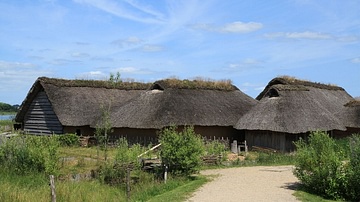
Image
Reconstructed Viking Houses at Hedeby
Reconstructed Viking houses from the Viking Age trading centre of Hedeby (also known as Haithabu in German) in what used to be part of the Danish Vikings' territory. It now lies in Germany, near the city of Schleswig on the Jutland peninsula...
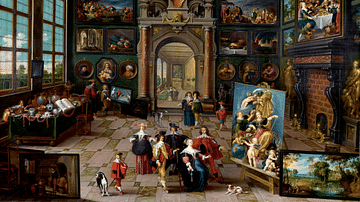
Article
Baroque, Age of Contrasts - Exhibition Interview Schweizerisches Landesmuseum
The Baroque era, which lasted from roughly 1580 and 1780, was a time of enormous contrasts: Opulence and innovation, on the one hand; death and crises, on the other. Ongoing religious wars and the opening of global trade networks led to mass...
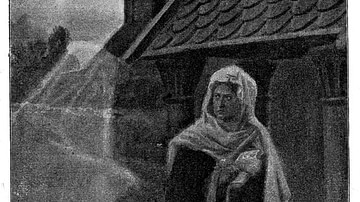
Article
Norse Ghosts & the Afterlife
The best-known vision of the Norse afterlife is that of Valhalla, the hall of the heroes where warriors chosen by the Valkyries feast with the god Odin, tell stories from their lives, and fight each other in preparation for the final battle...